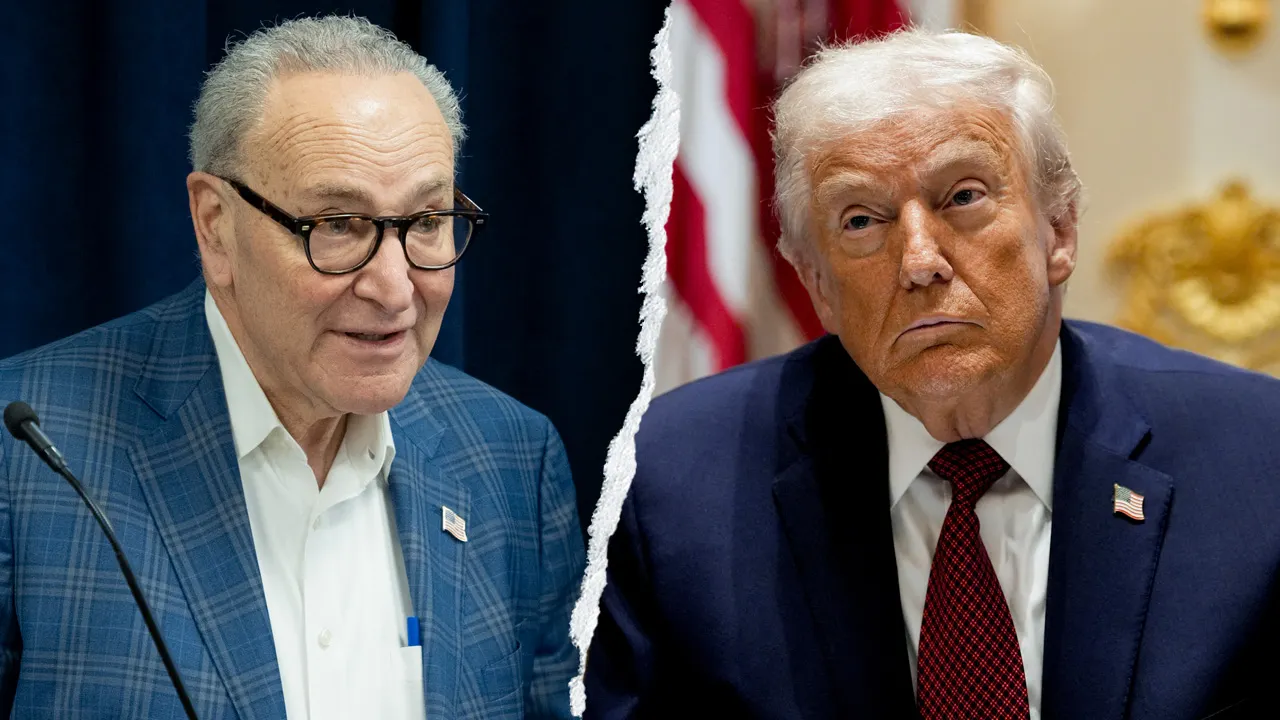Business
Schumer rips Trump over Nvidia AI chip exports to China: ‘Selling out America’

Senate Minority Leader Chuck Schumer, D-N.Y., criticizes President Donald Trump over Nvidia chip export announcement.
Senate Minority Leader Chuck Schumer, D-N.Y., accused President Donald Trump on Tuesday of “selling out America” for announcing that the U.S. will allow Nvidia to export its artificial-intelligence chips to China and other countries.
Trump said Monday that the U.S. will gain a 25% share from the H200 chip exports and that the trade will be closely monitored to safeguard national security.
“Donald Trump is just selling out America for his own ego and his own gain. That’s what he’s doing on chips,” Schumer said Tuesday. “When yesterday, Donald Trump announced he was giving the green light to Nvidia to send even more powerful AI chips to China, the H200, which are used to train AI models.”
“Let’s be clear. You can’t claim to be tough on China if you willingly sell them some of the most advanced chips in the world, so they can use it to strengthen their military,” Schumer added.
TRUMP GREENLIGHTS NVIDIA AI CHIP EXPORTS TO CHINA, TOUTS 25% US SHARE

Senate Minority Leader Chuck Schumer, D-N.Y., left, is criticizing President Donald Trump’s announcement about Nvidia chips. (Lev Radin/Pacific Press/LightRocket via Getty Images; Yuri Gripas/Abaca/Bloomberg via Getty Images / Getty Images)
FOX Business has reached out to the White House for comment.
The H200 chips are high-performance processors made by Nvidia that help run artificial intelligence programs, like chatbots, machine learning and data-center tasks.
| Ticker | Security | Last | Change | Change % |
|---|---|---|---|---|
| NVDA | NVIDIA CORP. | 185.55 | +3.14 | +1.72% |
In a statement to Fox News, Nvidia welcomed Trump’s announcement.
“We applaud President Trump’s decision to allow America’s chip industry to compete to support high paying jobs and manufacturing in America,” an Nvidia spokesperson said. “Offering H200 to approved commercial customers, vetted by the Department of Commerce, strikes a thoughtful balance that is great for America.”
PENTAGON LAUNCHES MILITARY AI PLATFORM POWERED BY GOOGLE GEMINI FOR DEFENSE OPERATIONS

A Nvidia logo is displayed on a phone screen near a microchip. (Jakub Porzycki/NurPhoto / Getty Images)
However, the House Select Committee on the Chinese Communist Party criticized the announcement, describing in a post on X that, “Right now, China is far behind the United States in chips that power the AI race.”
“Because the H200s are far better than what China can produce domestically, both in capability and scale, Nvidia selling these chips to China could help it catch up to America in total compute,” the committee said Tuesday. “Publicly available analysis indicates that the H200 provides 32% more processing power and 50% more memory bandwidth than China’s best chip. The CCP will use these highly advanced chips to strengthen its military capabilities and totalitarian surveillance.”

Senate Minority Leader Chuck Schumer, D-N.Y., is seen during a news conference following the weekly Senate Democrat policy luncheon at the U.S. Capitol in Washington, D.C., on Tuesday, Dec. 2, 2025. (Graeme Sloan/Bloomberg via Getty Images / Getty Images)
CLICK HERE TO READ MORE ON FOX BUSINESS
“Finally, Nvidia should be under no illusions — China will rip off its technology, mass produce it themselves, and seek to end Nvidia as a competitor,” the committee also said. “That is China’s playbook and it is using it in every critical industry.”
FOX Business’ Bonny Chu contributed to this report.










